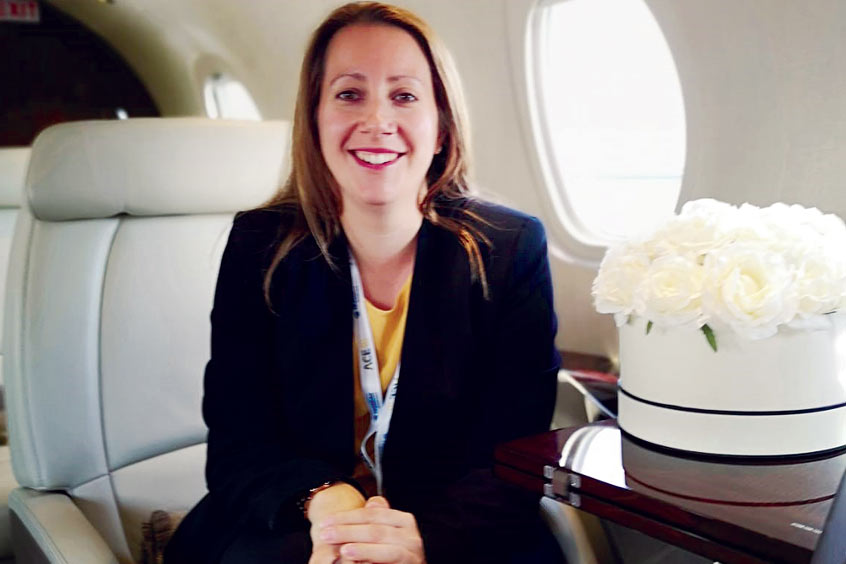Why visit ACE ’24?




The Air Charter Association (The ACA) has welcomed the successful negotiation of the EU-UK Trade and Cooperation Agreement, which was concluded on 24 December one week before the UK formally left the EU. Many businesses, including hundreds in the aviation industry, had been waiting with bated breath to see what the outcome would be, and how it would impact their livelihoods.
Although a deal was reached The ACA, supported by multiple operators in the UK, points out that there is still much to be decided upon, including non-scheduled ops permits, TCO approvals, the granting of 3rd and 4th freedoms for passenger flights, cargo flight 5th freedoms, and block permits from EU Member States.
“Non-scheduled or ad hoc services are now subject to a significant increase in administration as operators now have to apply and receive approved permits before they can operate flights between the UK and any EU state, and vice versa,” remarks Glenn Hogben, CEO of The ACA. “This is limiting and disruptive, particularly for time critical flights that have short lead times and fast departures. The UK government negotiating teams are now working extremely hard to quickly agree new bi-lateral arrangements with all of the EU states and have already achieved some success. The ACA is working to support this process and has weekly calls with the UK government teams working on these negotiations.”
The association has been compiling member feedback to highlight and focus efforts on the key issues, which Hogben says has been well-received by the authorities. “Our ongoing message to member companies is for them to please highlight issues to us as they arise, so that we can feed this back in a coordinated manner and enable the negotiators to work on a resolution with their counterparts.
“We are also engaging with other industry associations and working together to produce information and guides to help navigate through the swiftly changing landscape. Our new website page will be kept up to date with new resources and information as it is released.”
The ACA is holding regular discussions with the UK Department for Transport (DfT), and so far it has raised three key issues: commerciality within bi-lateral discussions, reciprocity deadlines and timeliness of issuing permits.
A key concern over applying commerciality to the discussions and negotiations relating to early bi-lateral agreements has been raised. This has been taken on board by the DfT team, which is setting a priority list of countries to focus the urgent discussions with. The initial DfT priority list of countries includes Germany, Italy, France, Spain, The Netherlands, Belgium and Sweden.
Where approvals and block permits have been awarded by the UK CAA, but have so far not been reciprocated by the EU member state or vice versa, The ACA proposes that a deadline for ceasing the approval be put in place, to ensure there is no longevity to any unfair advantage on either side.
Particularly important for ‘go-now’ flights, the timeliness of granting permits is an issue that is being widely experienced. “From the UK CAA perspective our discussions have clarified that the stated times are a maximum not a minimum time and the CAA will process as quickly as possible,” Hogben explains. “In addition, medical cargo has a prioritisation, so it is worth advising the nature of the cargo to ensure the appropriate prioritisation. From an EU perspective each member state should have their own pre-existing process, that other third country operators have to follow, and this will now be applied to UK operators. However, we have been assured that the main EU trade discussions did cover the principle of responding to applications as quickly as possible.
“This is another area where specific and detailed feedback of what is happening in reality will help to smooth the process, so that the DfT can take this up and ensure the systems are as quick as possible, particularly where the requests involve 3rd or 4th freedom flights that are covered within the trade agreement.”
Melanie Blackman, head of charter services at UK operator Dominvs Aviation, says the current lead times on receiving a permit to perform a flight from the UK into Europe is putting UK-based operators at risk of losing out on business to European operators transient in the UK: “We recently had a situation where a client was looking to fly London to Belgium in 48 hours time. The lead time for a permit from the Belgium CAA is currently up to 3 days. There was a number of European aircraft sat transient in London who could have performed this charter without the permit requirement. In the current COVID climate the permit office in Belgium in this instance was able to turnaround the permit in time to meet the clients schedule. It is very concerning for UK operators to be in a position of losing out on business from and to the UK, their home base, and we are concerned at the speed of turnaround times for permits outside of the pandemic.”
Bernhard Fragner, CEO of European VLJ operator GlobeAir, adds: “For aviation, the rules are now clearly on the table. Maybe the agreed terms are not what our industry wanted on either side but we have to make the best out of it.”
The British CAA offered EU-based private jet charter operators the chance to apply for a TCO block permit in December 2020 valid until 31 March 2021. GlobeAir applied and successfully received the certificate. All EU-based operators who have received this TCO are now able to fly with passengers from any EU member state to UK and also return from UK to any EU member state, but they cannot operate domestic flights within the UK with passengers. UK-based private jet charter operators can fly with passengers from the UK to one EU member state and return but require for every flight a permit which causes paperwork and additional fees. GlobeAir expects that the 27 EU member states will soon start negotiations to replace these burdensome flight permits with bilateral TCO block permits.
“I hope that these negotiations will be launched soon and that they will progress quickly,” Fragner continues. “The UK plays an important role in European aviation and should therefore remain an integral part.”
The old UK pet passport is no longer valid. There are no changes for travel to the UK for which the existing pet passport can currently still be used. From 1 January 2021, travellers with pets flying from the UK to the EU or Northern Ireland will instead need an Animal Health Certificate (AHC). The AHC must be issued at least 10 days before travelling to the EU and is then valid for four months, during which time it allows travel within the EU. The current entry requirements for the UK have not changed and the UK pet passport can still be used for entry, along with the usual vaccination requirements. The animal health certificate can also be used for re-entry into the UK if it is still valid.
Experts expect that the global economy will recover as vaccination coverage gradually progresses. Accordingly, this will also mean more business travel. Fragner agrees with the experts: “As travelling became harder, 2020 is when everybody learned how to meet via Teams, Zoom, Webex, Slido and others. Tools such as these became fair substitutes for face-to-face meetings and signified meaningful and efficient ways to stay in contact when meeting up was not possible. All those digital tools could never replace personal meetings and social interactions, but due to efficiency and cost pressures, many onsite meetings will be replaced by online tools. This trend will be sustainable and therefore business travel will no longer return to pre-Corona levels; it will permanently be less than before. The legacy airliners need to respond to this development and reduce their network.
“On the other hand, I see a strong need for personal and high quality onsite meetings. Global leaders of industry and business need to meet to develop deals and close deals to accelerate the much-needed economic recovery. Top executives and decision makers need to meet and therefore travel. Driven by the need for time efficiency and the need for biosecurity, these business trips will be predominantly made by low-cost private jets, not luxury ones. The lack of supply from the well-known providers of business travel in the EU, such as the Lufthansa Group, will reinforce this trend.”
Private aviation might be used by more companies and will not only be reserved for the CEO and chairman, but also for other levels of management and executives. The light jet segment could grow again, as it did in 2020. “At GlobeAir, we expect additional business travel growth of +20 per cent YOY mainly in western Europe,” Fragner concludes. “I expect more activity in the European business capitals such as London, Paris, Geneva, Zurich, Munich, Hamburg, Frankfurt, Vienna, Milan and Düsseldorf. The Eastern European capitals will, in my estimation, remain at their usual low level in terms of business travel.”
